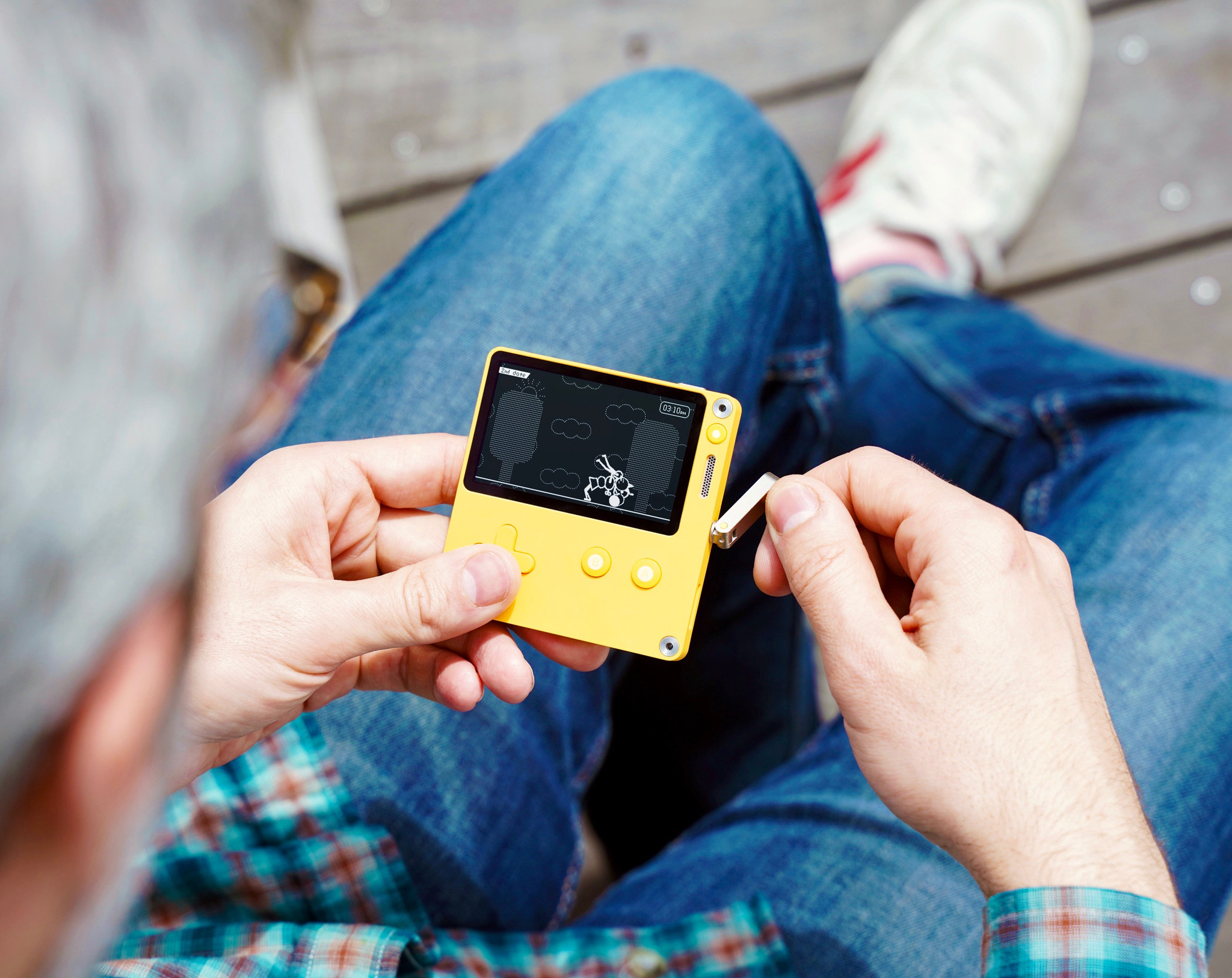
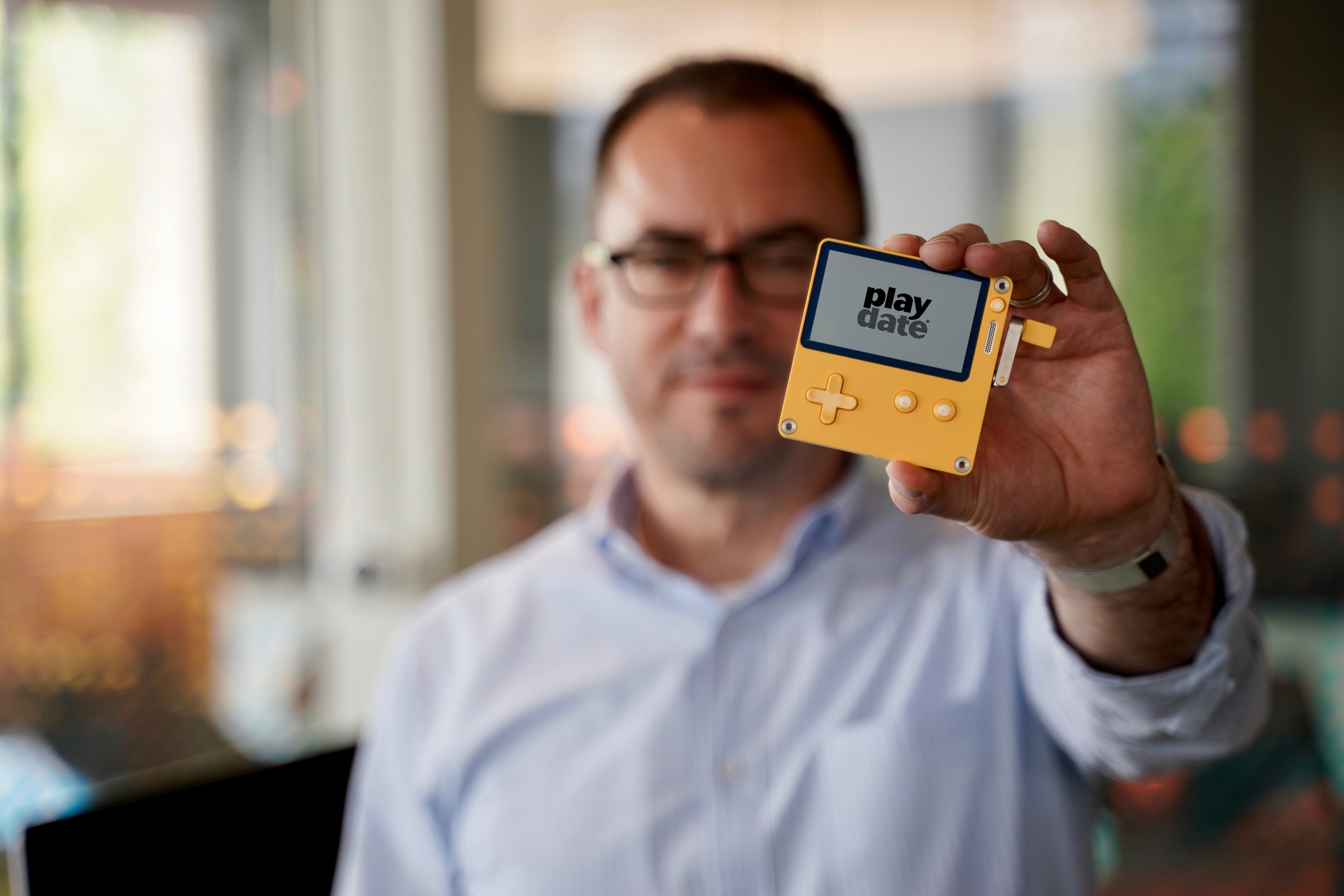
Panic just announced that pre-orders for Playdate, that cute little yellow console, will be open on July 29. There has been considerable hype around this product, partially bolstered by Panic's reputation in the tech space (particularly the Apple community) but mainly because a fresh take on gaming is very welcome in an established market that only really consists of a few key players.
The physical design of the Playdate is nothing if not unique, with Teenage Engineering behind its styling. It's bright, fun, and will even look great sitting on your desk or nightstand when you're not using it. Plus, that distinctive crank will open up some fun new ways to play games and enable entirely new types of games that wouldn't work with the D-pads, buttons, and joysticks that we're used to.
One aspect of Playdate that really makes it stand out has nothing to do with its physical form: Playdate Seasons. I spoke to Panic's Director of Special Projects Greg Maletic to find out more about Seasons and why the company decided on a seasonal release schedule.
The surprise factor
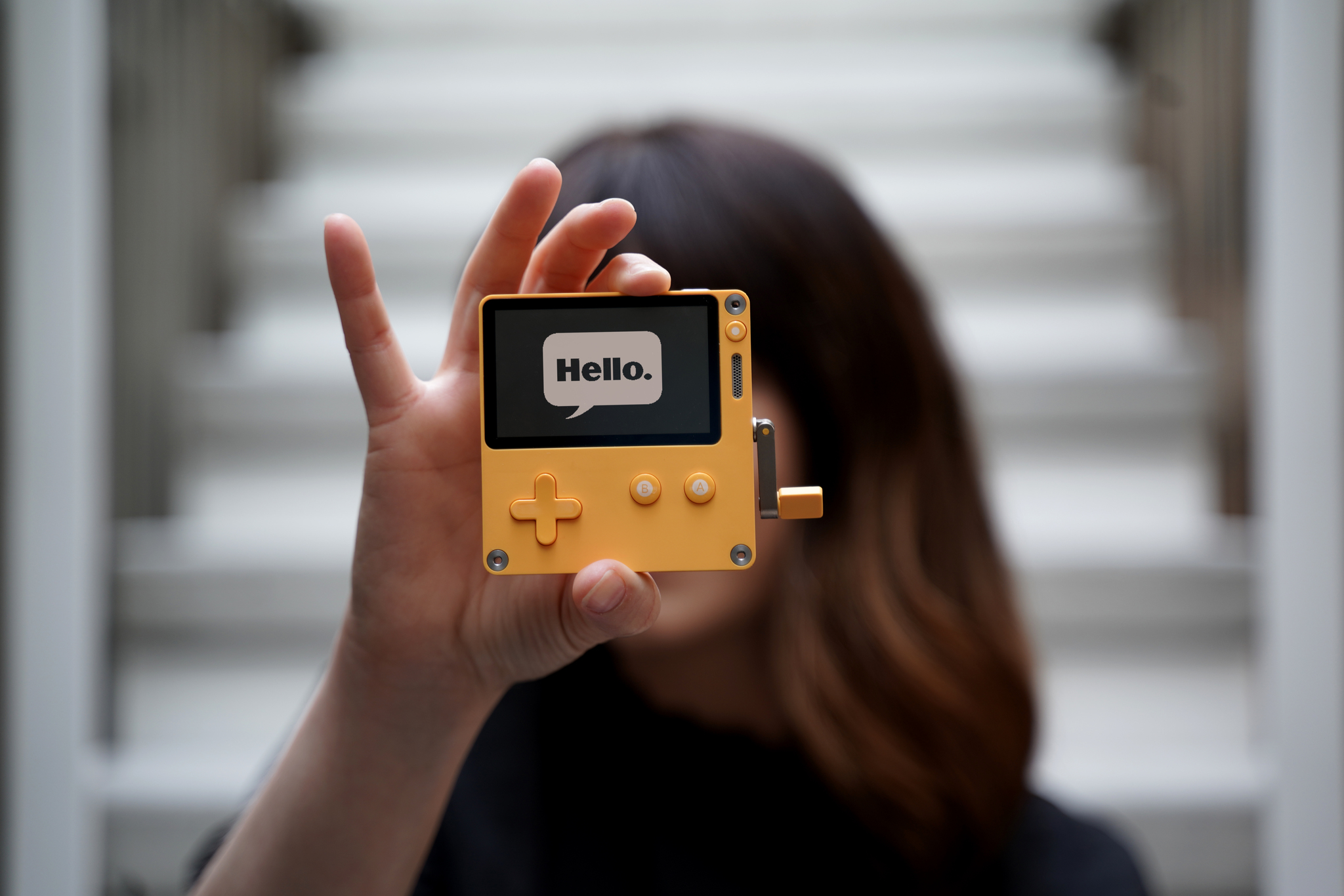
Playdate's Season One will offer users two new games per week (up from the original plan to launch one per week) for the first 12 weeks. The games are free or, rather, included in the price of the console.
Panic has been mostly tight-lipped about the games included in Season One other than the names and a few preview screens for select games. This surprise element has been a part of the Playdate concept from the beginning, as Maletic tells iMore, "Once we decided that we'd make a device like a 1980s Nintendo Game-N-Watch, we had the bright (or maybe not-so-bright) idea: what if the device magically morphed into a new, surprise game each week? That's where the idea of the Season came from: surprise games, delivered on a schedule."
It's certainly a neat idea to drip-feed new games in this way, giving players a reason to regularly pick up the Playdate. It also allows for a shared experience, particularly for early adopters who will all experience Season One at roughly the same time.
"Surprise games, delivered on a schedule"
"At one point, we thought your Playdate should only be allowed to play the game of the week. Then a new game would come along, and the previous game would be gone," says Maletic. "That was followed up by a model where everybody would get their Playdate at the same time, and everyone would play the Season in sync. But we realized we couldn't possibly manufacture and ship enough Playdates at once to make that work. The model we landed on, where everyone's Season is an individual experience, and begins at the moment they turn on their Playdate - we think it's a good compromise, but we'll see how it goes."
Master your iPhone in minutes
iMore offers spot-on advice and guidance from our team of experts, with decades of Apple device experience to lean on. Learn more with iMore!
Players picking up a Playdate later will experience Season One on their own timeline, so that surprise factor may be diminished once game reviews start hitting the web from those that snagged the console earlier. Maletic figures that some people will enjoy having that information out there, and others can ignore it and stay focused on their own experience to retain the surprise element.
Apple Arcade's shifting strategy
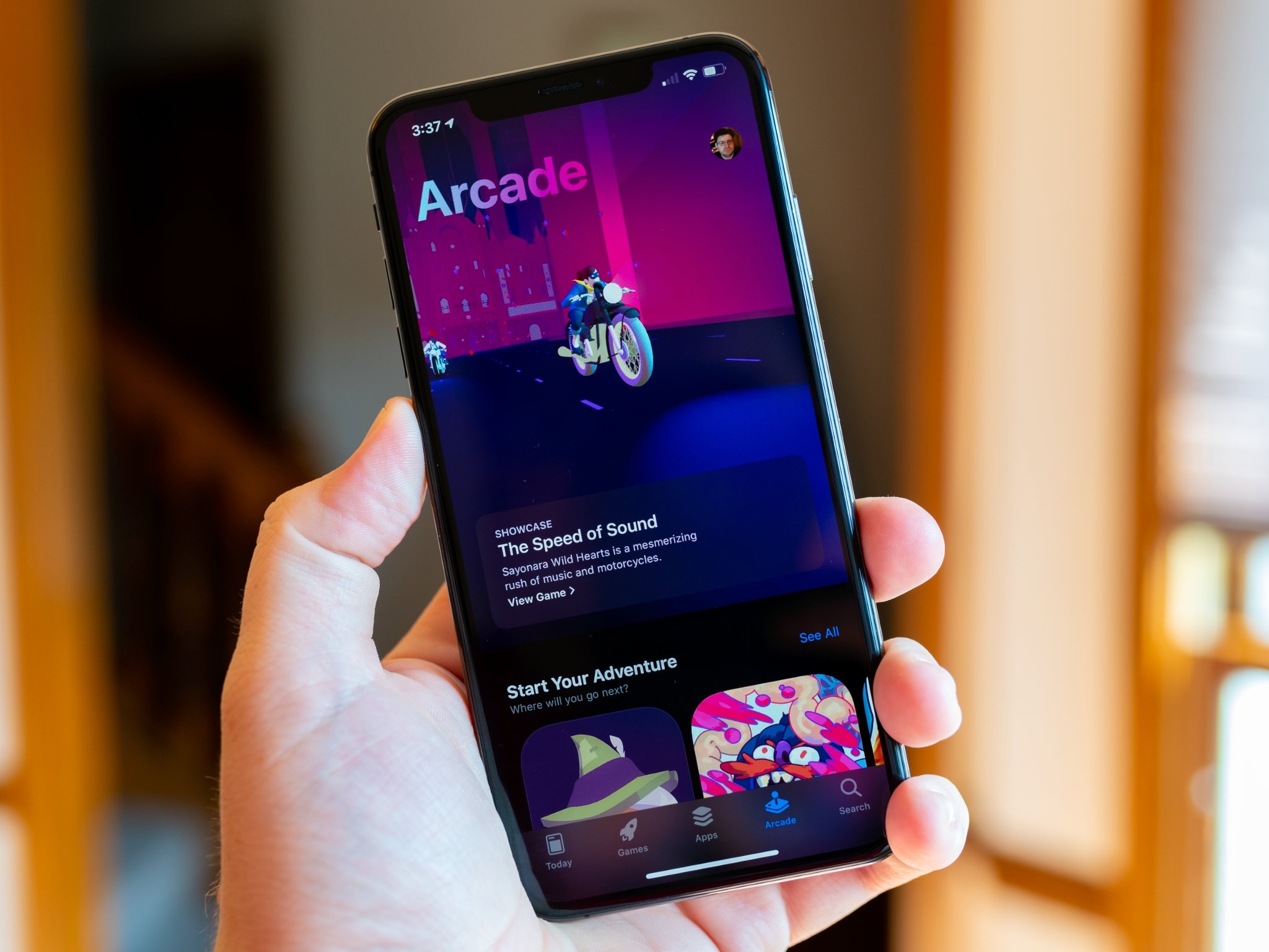
When Apple Arcade launched, it had some of the same excitement around it for the exclusive titles coming to the service. An editorially curated group of games not constrained by the economic model of the App Store, meaning no ads and no in-app purchases cluttering up the experience, is appealing, but the service quickly became overwhelming with the number of titles.
For Apple, the service has to be perceived as providing value for money, and its market for Arcade is much greater than Panic's market for Playdate, so it needs to ensure it is providing a game for everyone who might try out the service.
Apple also has other aims, criteria for success, and a different, subscription-based business model, but Playdate has me wondering if it has missed a trick with its Apple Arcade messaging and the way it has released games.
When asked what role Seasons will have in setting Playdate apart from mobile gaming competition like Nintendo Switch and Apple Arcade, Maletic notes that Panic wanted Playdate to offer a different kind of experience, more like a "little box that's full of surprises."
"You just sit back and let it delight you with clever, new, beautiful games from some expert game designers. No choices or additional purchases to make - the games just 'happen' to you as they flow onto the device," Maletic says of the Seasons experience. "Not all at once, not like through a firehose, but at a pace that will let you dive into and experience each one thoroughly."
Arcade had a different launch strategy, arriving with a catalog of around 70 games in September 2019. After its launch, Apple added new games to Arcade at a decent clip, so there were soon more than 100 titles on the service, with several being added each week up until November 2019. After that, though, momentum seemed to slow, and the games have since started to trickle in with some months seeing no new releases at all.
Last year, there were reports of Apple canceling some games in order to focus on addictive, free-to-play style games that would boost engagement in an apparent move away from its editorial focus on quality and unique experiences.
Earlier this year, Apple Arcade saw its biggest revamp to date in an update that muddied its messaging even further. Arcade gained some new exclusive titles, but also switched to a new categorization system for its games (not surprising given how many there now are). These categories are Apple Originals, Timeless Classics, and App Store Greats.
"It's amazing that our phones and game consoles have stores with tens of thousands of games... but we wanted Playdate to feel simple."
The first category consists of the Arcade-exclusive titles that used to be all that the service contained. The two newer categories allow Apple to bring back popular, old-school games and offer some popular App Store titles without ads or in-app purchases. Unlike its Apple TV+ and weekly-updating Apple Fitness+ services, Apple Arcade is no longer an all-exclusive offering in that way.
Maletic believes there is room for different types of gaming experiences to co-exist alongside each other. "Don't get us wrong: it's amazing that our phones and game consoles have stores with tens of thousands of games on them. But instead of feeling overwhelmed with choice, we wanted Playdate to feel simple. Doing a round of curated games as a "Season" seemed like an experience we wanted to have, and we hoped other people would feel the same way, too."
What's next?
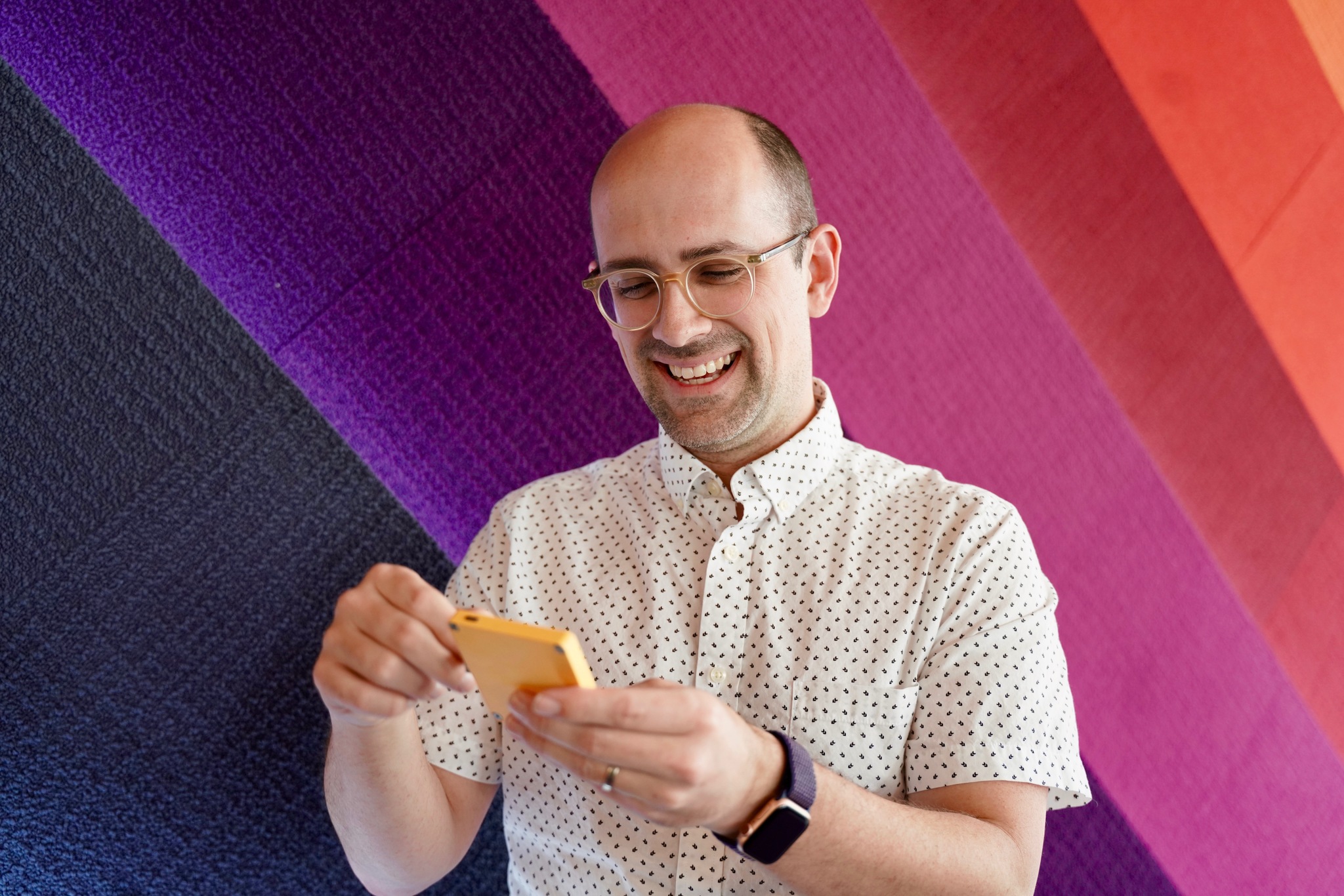
Apple Arcade has bolstered its offering to 180+ games, including exclusive games and revamped titles. The company appears to have recently recommitted to a regular release schedule dropping new games, like Alto's Odyssey and Angry Birds Reloaded, every week since mid-June. Other titles are already listed as coming soon within the App Store's Arcade page, so a content drought is not on the horizon right now.
With a weekly dose of new games and updates to pre-existing ones, Arcade should do enough to keep gamers interested in the service — especially those that have it as part of an Apple One bundle and essentially get it "free" if they would otherwise have paid for Apple's other service offerings. That being said, a little bit of whimsy and surprise in Apple Arcade might help to emulate some of what is unique about Playdate Seasons and improved the shared experience of Arcade users.
I asked Maletic about Playdate developer interest and the future of Seasons. While Panic is waiting to see how many people are interested in the Playdate before determining how games are distributed in the future, over 14,000 game makers having expressed an interest in writing for the platform, and those that have access to Playdate's development kit are said to "love it."
Playdate will be available to pre-order on July 29 at 1 pm ET. It is priced at $179 or $199 with a protective cover. It will begin shipping "towards the end" of this year.
Adam Oram is a Senior Writer at iMore. He studied Media at Newcastle University and has been writing about technology since 2013. He previously worked as an Apple Genius and as a Deals Editor at Thrifter. His spare time is spent watching football (both kinds), playing Pokémon games, and eating vegan food. Follow him on Twitter at @adamoram.

